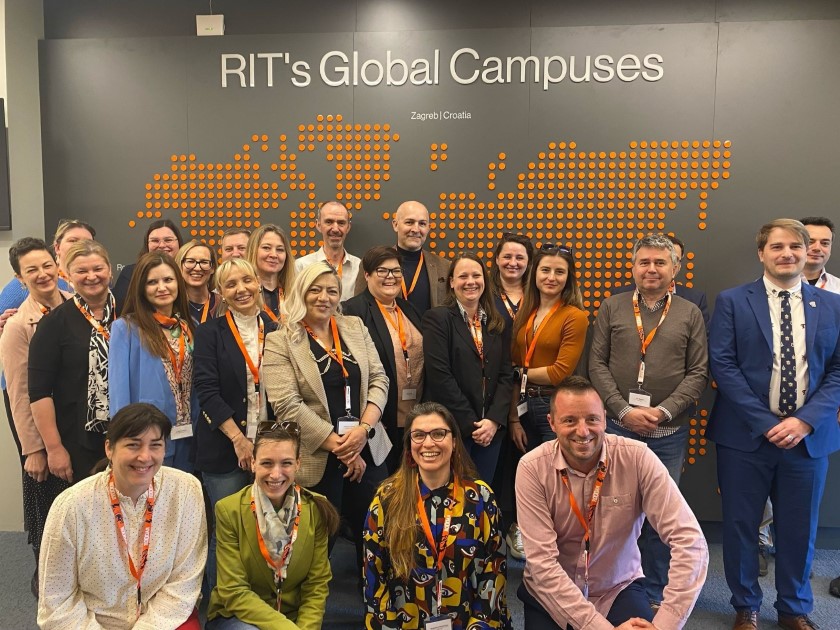Strengthening small family farms for a sustainable future: The DINAMIC Danube project
RIT Croatia is proud to serve as the Lead Partner in the DINAMIC Danube project, aimed at revitalizing small family farms across the Danube Region. This €2.4 million project is co-funded by the European Union through the Interreg Danube Region Programme, with EU support totaling €1.91 million. The project runs from April 1, 2025, to April 1, 2028.
The project, officially launched on April 11 in Zagreb, addresses socio-economic challenges threatening rural areas, particularly small family farms, which are vital to the region’s economy. These farms face depopulation, aging farmers, migration, and lack of technological adoption.
DINAMIC Danube targets these challenges by strengthening small family farms through lifelong learning, mentorship, and the introduction of innovative technologies. The project focuses on sustainability, gender equality, and rural development. It will directly engage 500 small family farms, offering training and fostering sustainable agricultural practices.
A Holistic Approach to Rural Development
The project combines education, technology, and capacity-building initiatives to strengthen local economies. By empowering female farmers and improving farm sustainability and competitiveness, DINAMIC Danube aims to create long-term change in the region.
Dr. Martin Žagar, the project coordinator at RIT Croatia, said, “The lack of modern skills and migration challenges require immediate action. This project provides the tools to ensure the sustainability of small family farms through education and technological innovation.”
Empowering Farmers through Education and Mentorship
Through new curricula and hands-on training, farmers will learn precision farming techniques and sustainable practices. Dr. Vanja Vejzagić, a project team member, added, “Education is key to improving long-term productivity and fostering continuous improvement in agriculture.”
Building a Danube-Wide Network
A major goal is to create a Danube-wide network for bioeconomy and precision farming. The project will foster cross-border collaboration through study visits, benchmarking, and policy dialogue, ensuring long-term impact for the region’s agricultural sector.
Dr. Kristina Šorić emphasized the importance of collaboration in agri-food supply chains to improve strategies and processes. "Only through collaboration, integration, and coordination of agri-food supply chains can small family farms prosper and grow. Raising awareness and understanding of the importance of optimizing the entire supply chain, rather than working in silos, is a significant achievement, and we will work on that."
"It is important to learn from one another and to share experiences, as this will contribute to a strong network, process improvement, and optimization," she added.
Sustaining Long-Term Impact
The DINAMIC Danube project aims to create joint strategies and action plans to sustain its impact beyond the project’s duration. This will involve continuous engagement with policymakers to influence agricultural policies across the Danube Region.
“We hope our work leads to positive policy changes and more sustainable farming practices,” concluded Dr. Žagar.
Partners:
The project is implemented by a consortium of organizations, including:
ICEBERG PLUS, WECREATE, Regional Economic Development Agency for Šumadija and Pomoravlje, City Development Agency East Sarajevo, Sarajevo Economic Region Development Agency, Optimization Ltd., School of Advanced Social Studies in Nova Gorica, Rudolfovo – Science and Technology Centre Novo Mesto, Municipality of Beltinci, Steinbeis 2i GmbH, South Transdanubian Regional Innovation Agency, Carinthia University of Applied Sciences, Donetsk National Technical University, Brno University of Technology, and NGO OIKUMENA.
This project is supported by the Interreg Danube Region Programme co-funded by the European Union
For more information, please visit: https://interreg-danube.eu/projects/dinamic-danube







